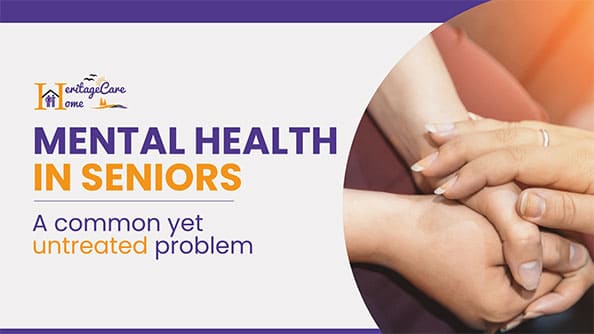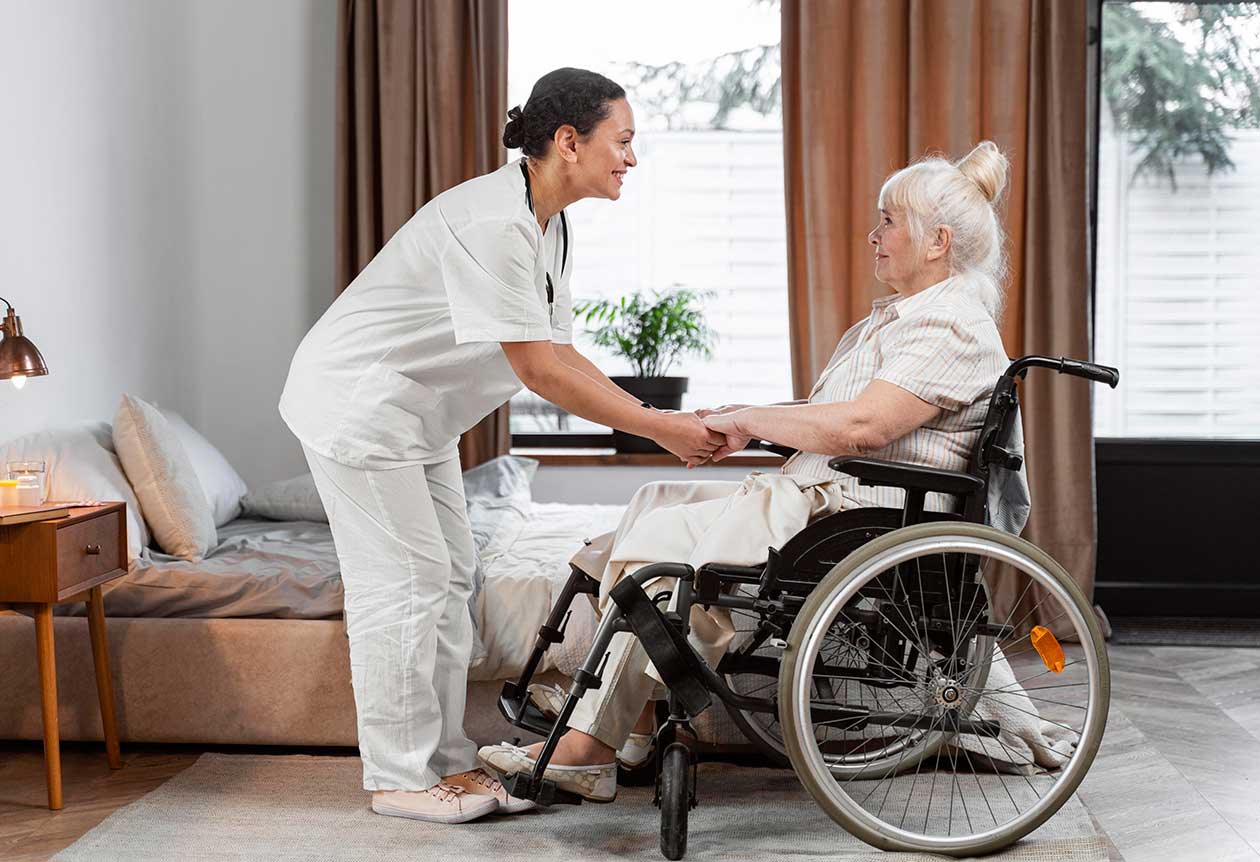Top tips for an enjoyable senior travel
- Admin |
- June 27, 2023
Travel requirements and preferences can change significantly as we age, regardless of whether you are a seasoned globetrotter or...
Read more
As we grow older, we experience a variety of life-altering events that may have an impact on our mental health, such as receiving a serious illness diagnosis or grieving the loss of a loved one.


As we grow older, we experience a variety of life-altering events that may have an impact on our mental health, such as receiving a serious illness diagnosis or grieving the loss of a loved one. Some people develop coping mechanisms for these changes. Others may find it difficult and prone to depression and feelings of loneliness.
Due to the lower rate of assistance for mental health conditions among older adults, mental health is particularly crucial for them. Over 20% of adults 60 and older, most frequently with anxiety, depression, and dementia, experience mental health problems, according to the World Health Organization.
Both older adults and the healthcare professionals who treat them frequently fail to recognize mental health in older adults. People may be reluctant to seek assistance when they require it due to the stigma associated with mental health issues.
It is crucial to close this gap in older adults' access to mental health care and to increase awareness. Here are a few ways to identify factors that affect older adults' mental health, typical signs and problems, and how to get help when you need it.
Seniors are more likely to experience mental health problems that are more prevalent later in life, such as declining cognitive abilities, but they can also experience common mental health problems like depression and anxiety. Here is a list of typical life changes that seniors go through and which may have an impact on their mental health.
One of the most difficult things anyone can go through is the death of a family member or friend. As people age, they are more likely to lose a loved one. Everyone experiences grief in their unique way. They may cry, become angry, isolate themselves, or feel empty and drained.
Whether it is an illness or an injury, a serious diagnosis can put an older adult's mental health at risk. As people get older, they are more likely to receive diagnoses like reduced mobility, chronic pain, and terminal illness. The mental health of a person has a direct impact on their physical health.
When someone retires, their regular financial situation may suffer, which can cause stress in their life. Seniors frequently have to live on a lower income, and their daily lives may be disrupted. These major changes can elicit a wide range of complex emotions, potentially leading to mental health problems.
It can be difficult to leave a home that has been filled with memories and warmth for many years. The stressors of leaving due to financial issues, retirement, or physical needs can all contribute to an older adult's mental health.
Seniors can experience abuse through a person’s deliberate acts or negligence. Physical, sexual, and emotional abuse, neglect, and financial exploitation are all examples of this. Abuse can have an immediate and negative impact on the mental health and well-being of an elderly person.
Depression, one of the most common mental health issues in seniors, is characterized by a persistently unhappy mood or a loss of interest in previously enjoyable activities. Apathy, difficulty getting out of bed, difficulty sleeping, social isolation, and hopelessness are some of the symptoms. If left untreated, depression can lead to poor eating habits and suicidal thoughts.
Dementia, which is frequently misdiagnosed as a disease, is a general term for the impaired ability to remember, think, and make decisions to the point where it interferes with an older adult's ability to do daily activities. Cognitive and mental decline, confusion, personality changes, memory loss, and jumbled speech are all symptoms of dementia. Dementia patients are frequently unable to live alone because they are unable to perform activities of daily living.
Fear, dread, or apprehension are common responses to increased stress and anxiety. When confronted with a major decision, test, or event, it is common to experience anxiety, but it can be an indication of an underlying disease if feelings become overwhelming and interfere with daily living.
Bipolar disorder, which is thought to be caused by a combination of genetics, environment, and brain structure, can result in manic episodes of high energy that last days, followed by depressive episodes of low energy and motivation. Suicidal thoughts can also be associated with episodes.
Mental illness in older adults can go untreated for a variety of reasons. People suffering from mental illnesses frequently do not seek treatment due to stigma and fear of being treated differently, which leads to shame. Another reason older adults may go untreated for mental health illnesses is a common misconception that depression and anxiety are normal signs of aging when they are just as serious in older adults. Ageism in healthcare can lead to both overtreatment and undertreatment of seniors. So finding a suitable solution is essential.
Promoting active and healthy lifestyles can improve the mental health of older adults. Residents at Heritage Care Home can meet other seniors, participate in enriching programs, and reimagine aging. Furthermore, with our fitness and rehabilitation partner, Agility, physical wellness can help support emotional well-being.
Heritage Care Home assisted staff members are always available to meet your needs, big or small. We provide the highest level of service, so there is always something to do or an event to attend for a chance to find love and connection. Contact us to know more about Heritage Care Home assisted living community.

Travel requirements and preferences can change significantly as we age, regardless of whether you are a seasoned globetrotter or...
Read more
Dogs are excellent elderly companions. Dogs are a delight to share a house with because of their amusing, devoted, and adorable personalities...
Read more
Any age can find dating intimidating, but older adults in particular. The majority of people only date once...
Read more
In assisted living facilities, respite care is a short-term care option for elderly people who need help with daily tasks...
Read more
The majority of Americans eagerly look forward to retirement. Many people have distinct memories of traveling, exploring the nation...
Read more